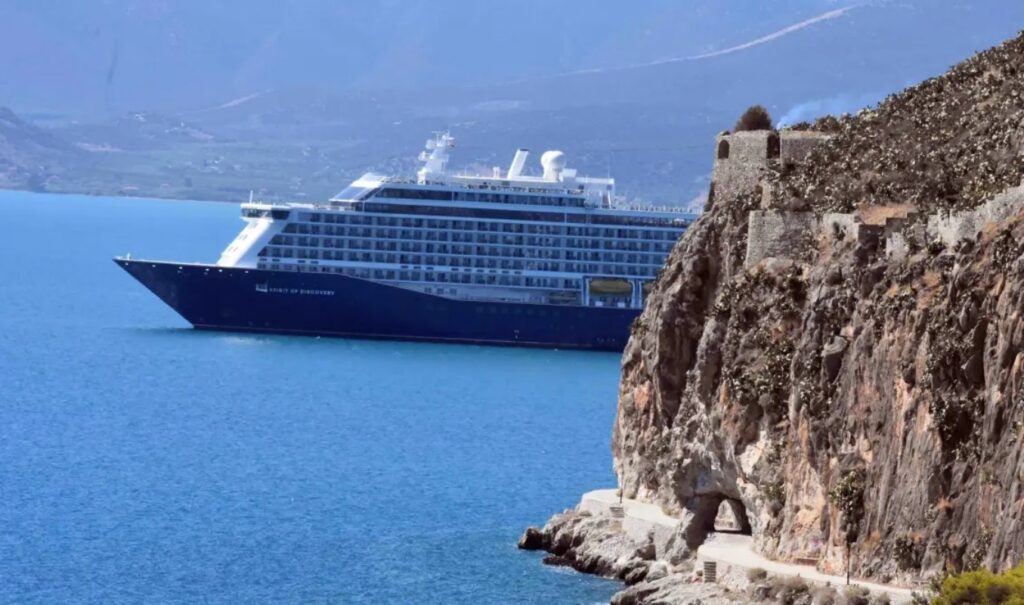With the special cruise fee per passenger now in effect, opinions are divided as travelers have yet to demonstrate understanding of this new measure’s effectiveness. While revenues are distributed to funds for required infrastructure projects and to the Ministries of Shipping and Tourism, the charges are not uniform since costs range from €1 to €20 (see Mykonos, Santorini) depending on the season.
Read: Cruise passenger fee: Now in effect – The amount passengers are charged based on destination
This, on one hand, strengthens sector development as a form of compensatory measure and offset to the general burden caused by hop-on hop-off mass tourism. On the other hand, it might lead to a decrease in passengers and consequently revenues, since infrastructure development is a matter of state responsibility rather than travelers’.
The cruise industry generates over €1.1 billion in added value
Nevertheless, the sector continues to sail with optimism, against the grumbling, promoting goals for better coordination and sustainable development. Just days ago, the Cruise Lines International Association (CLIA) once again called upon government representatives, local authorities, port authorities, and tourism bodies to collaborate with cruise suppliers and professionals under the message of a new campaign with the slogan “All Aboard Greece”.
Emphasizing that cruising generates over €1.1 billion in added value, the Hellenic Ports Association (ELIME) reports in its latest data that significant investments have already proceeded in Piraeus, Thessaloniki, and Heraklion while infrastructure projects in smaller ports are progressing at slower rates to simultaneously facilitate passengers and ships.
Piraeus will acquire new terminal for luxury cruise ships
We remind that the port of Piraeus has already set a record with 1.7 million passengers (2024), equally significantly increasing its homeporting percentage. Therefore, PPA’s immediate plans include creating a new passenger terminal that will exclusively serve luxury cruise ships. “Cruising is particularly important for the Greek economy as thousands of people make their living from it, and all these professionals are our greatest ambassadors,” commented Maria Deligianni, CLIA’s Eastern Mediterranean Director regarding the new campaign.
For his part, Manolis Koutoulakis emphasized that the measure, scale, and limit at which Greek islands can absorb this significant cruise tourism activity must be immediately examined.
Similarly, Dimitris Bekos, head of TUI Musement in Greece, Cyprus, Egypt, Malta, and UAE explained how cruising activates dozens of professional sectors providing services from boat operators and anti-pollution to excursion services to archaeological sites and wineries. “In homeporting, we’ve seen in recent years a very large percentage of passengers arriving two or three days before ship departure, creating additional revenue in hospitality, commerce, and dining.”




